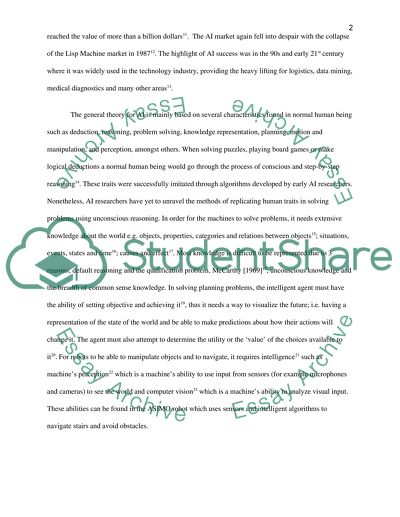Cite this document
(Artificial Intelligence: History and General Theory Assignment, n.d.)
Artificial Intelligence: History and General Theory Assignment. Retrieved from https://studentshare.org/sociology/1515786-ai-theory
Artificial Intelligence: History and General Theory Assignment. Retrieved from https://studentshare.org/sociology/1515786-ai-theory
(Artificial Intelligence: History and General Theory Assignment)
Artificial Intelligence: History and General Theory Assignment. https://studentshare.org/sociology/1515786-ai-theory.
Artificial Intelligence: History and General Theory Assignment. https://studentshare.org/sociology/1515786-ai-theory.
“Artificial Intelligence: History and General Theory Assignment”. https://studentshare.org/sociology/1515786-ai-theory.


